Filter by
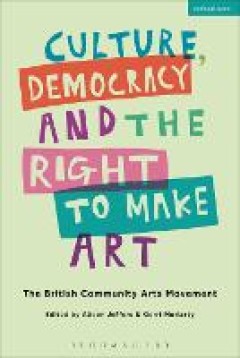
Culture, democracy and the right to make art : the British community arts mov…
Based on the words and experiences of the people involved, this book tells the story of the community arts movement in the UK, and, through a series of essays, assesses its influence on present day participatory arts practices. Part I offers the first comprehensive account of the movement, its history, rationale and modes of working in England, Northern Ireland, Scotland and Wales; Part II brin…
- Edition
- -
- ISBN/ISSN
- 9781474258388
- Collation
- xiv; ill; 280 p.
- Series Title
- -
- Call Number
- 700.10309410904 JEF c
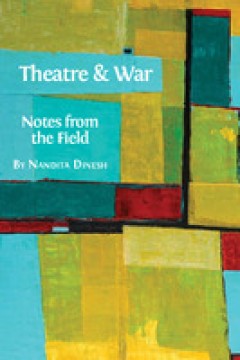
Theatre and war : notes from the field
"Nandita Dinesh places Kipling’s ""six honest serving-men"" (who, what, when, where, why, how) in productive conversation with her own experiences in conflict zones across the world to offer a theoretical and practical reflection on making theatre in times of war. This timely and important book weaves together Dinesh’s personal narrative with the public story of modern conflict, illustratin…
- Edition
- Edition 14
- ISBN/ISSN
- 9781783742585
- Collation
- 210 p
- Series Title
- -
- Call Number
- 809.293581 DIN t
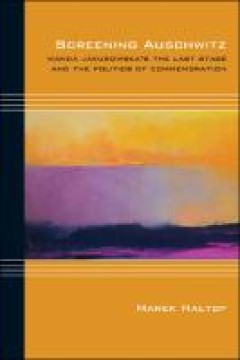
Screening Auschwitz; Wanda Jakubowska's The Last Stage And The Politics of Co…
This book about the early screen representation of Auschwitz-Birkenau deals with the classic Holocaust film made in 1948 in Poland by Auschwitz survivor, director Wanda Jakubowska. The Last Stage (or The Last Stop) is a pioneering work – the first narrative film to portray the former Nazi German camp. Haltof discusses Jakubowska’s life and career before World War II, her imprisonment during…
- Edition
- -
- ISBN/ISSN
- -
- Collation
- Knowledge Unlatched (KU)
- Series Title
- -
- Call Number
- -
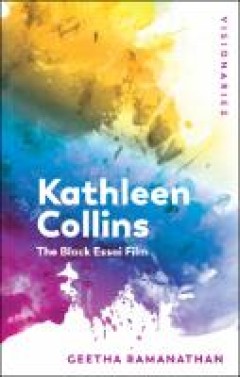
Kathleen collins : the black essai film
A philosopher-filmmaker, Kathleen Collins decisively redefined the parameters of African American film with Losing Ground (1982). This book uses detailed analyses of Collins’s films to contextualise her work in the African American, feminist and world film traditions, and it highlights her contribution to each of these canons.
- Edition
- edision 16
- ISBN/ISSN
- 9781474440707
- Collation
- vii. ;ill. ;164 p.
- Series Title
- -
- Call Number
- 791.430233092. KAT g
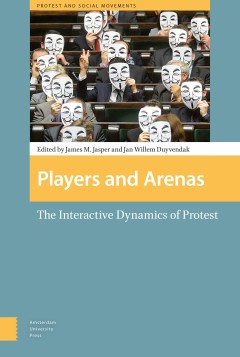
Players and Arenas : the Interactive Dynamics of Protest
Players and Arenas brings together a diverse group of experts to examine the interactions between political protestors and the many strategic players they encounter, such as cultural institutions, religious organizations, and the mass media—as well as potential allies, competitors, recruits, and funders. Discussing protestors and players as they interact within the “arenas” of specific so…
- Edition
- -
- ISBN/ISSN
- 9789048524235
- Collation
- 322 p.
- Series Title
- -
- Call Number
- 303.484 PLA J

The Mimetic Strand in the Cello Literature : Within the Context of History, I…
This book is the first integral study of the history of imitative or co-creative artistic work that has led to the creation of cello transcriptions and arrangements. Of an interdisciplinary character, it explores the views that have shaped approaches to the art of cello performance and describes the role of cello transcriptions and the development of instrument making. The book also addresses i…
- Edition
- 13
- ISBN/ISSN
- 9783631826287
- Collation
- 334p;
- Series Title
- -
- Call Number
- 787.4 MIM U
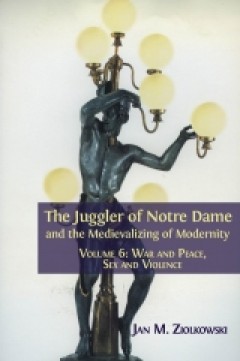
The juggler of Notre Dame and the medievalizing of modernity : volume 6 war a…
This ambitious and vivid study in six volumes explores the journey of a single, electrifying story, from its first incarnation in a medieval French poem through its prolific rebirth in the nineteenth and twentieth centuries. The Juggler of Notre Dame tells how an entertainer abandons the world to join a monastery, but is suspected of blasphemy after dancing his devotion before a statue of the M…
- Edition
- -
- ISBN/ISSN
- 9781783745418
- Collation
- 324 p. : ill. ; 25.4 cm.
- Series Title
- -
- Call Number
- 841.109 ZIO t
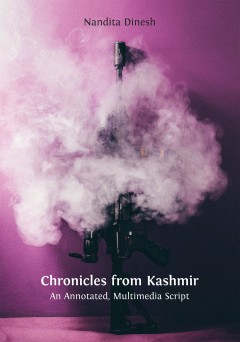
Chronicles from Kashmir : an annotated, multimedia script
Chronicles from Kashmir explores this question through a site-adaptive 24-hour theatrical performance. Developed between 2013 and 2018 by the Ensemble Kashmir Theatre Akademi and Nandita Dinesh, the play uses a durational, promenade format to immerse its audience within a multitude of perspectives on life in Kashmir. From a wedding celebration that is interrupted by curfew, to schoolboys divide…
- Edition
- -
- ISBN/ISSN
- 9781800640191
- Collation
- xi, 254 p. ; ill
- Series Title
- -
- Call Number
- 791.09730904 DIN c
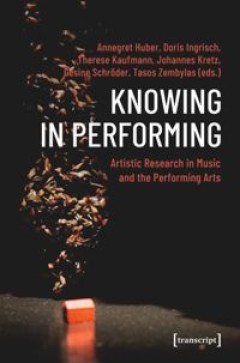
Knowing in performing: artistic research in music and the performing arts
How can performing be transformed into cognition? Knowing in Performing describes dynamic processes of artistic knowledge production in music and the performing arts. Knowing refers to how processual, embodied, and tacit knowledge can be developed from performative practices in music, dance, theatre, and film. By exploring the field of artistic research as a constantly transforming space for pa…
- Edition
- -
- ISBN/ISSN
- 9780429323058
- Collation
- 224 p.
- Series Title
- -
- Call Number
- 790.2 KNO K
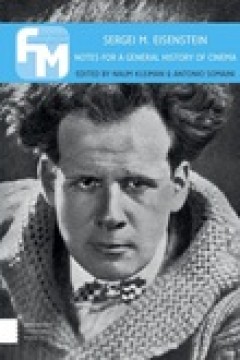
Sergei M. Eisenstein: notes for a general history of cinema
One of the iconic figures of the twentieth-century cinema, Sergei Eisenstein is best known as the director of The Battleship Potemkin, Alexander Nevskii and Ivan the Terrible. His craft as director and film editor left a distinct mark on such key figures of the Western cinema as Nicolas Roeg, Francis Ford Coppola, Sam Peckinpah and Akiro Kurosawa.This comprehensive volume of Eisenstein’s writ…
- Edition
- -
- ISBN/ISSN
- 9789089648440
- Collation
- -
- Series Title
- Film Theory in Media History
- Call Number
- 791.430233092 SER s
 Computer Science, Information & General Works
Computer Science, Information & General Works  Philosophy & Psychology
Philosophy & Psychology  Religion
Religion  Social Sciences
Social Sciences  Language
Language  Pure Science
Pure Science  Applied Sciences
Applied Sciences  Art & Recreation
Art & Recreation  Literature
Literature  History & Geography
History & Geography